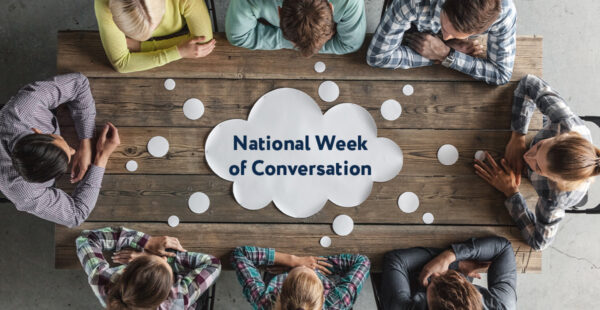On Tuesday, the Public Religion Research Institute – a Washington, DC-based nonpartisan group that studies issues of religion, culture, and public policy in the United States – released new survey results of Nebraskans that explores the fault lines from demographic and cultural shifts. The project sampled 1,300 Nebraskans on a broad assortment of issues, from health care to immigration, from President Trump to tariffs, from race relations to gun control, to name a few.
The results were wide-ranging. On some issues, Nebraskans were a near-perfect reflection of the rest of the country. In others, our independent streak stood out. Here’s a comprehensive summary of the results.
Naturally, we were most interested in a brief section of the survey that zoomed in on Nebraskans’ civic engagement. Here’s what residents said:
– Less than half, 45 percent, have acted on a civic or political issue. The most common actions include signing petitions (22 percent), sharing opinions about a community issue (18 percent), commenting about politics online (13 percent), contacting a government official (12 percent), or serving on a committee for a community organization (7 percent).
– Fewer than one in 10 have attended a protest or rally (4 percent), written a letter to the editor (3 percent), volunteered for a presidential campaign (2 percent) or another campaign (1 percent), or held elected office (1 percent).
– Older Nebraskans are more likely to be civically involved. Fifty-three percent of respondents over 65 said they have done at least one of those activities above. That’s compared with just 38 percent for those under 30.
– More educated Nebraskans are more civically involved. Fifty-six percent of college graduates replied that they have taken at least one of the aforementioned actions. That’s compared with with just 39 percent without a degree.
– White and non-white Nebraskans are about equally likely to be civically involved. Non-white Nebraskans are more likely to have attended a political protest or rally (7 percent) or volunteered for a presidential campaign (5 percent) than white Nebraskans (3 percent and 2 percent, respectively).
While the survey showed stark partisan divisions on several topics, nearly six in 10 Nebraskans also said they felt the state was moving in the right direction. Plus, three out of four said they were optimistic that Americans of different stripes can work together to tackle big issues. Which is pretty close to the definition of civic health, something we work on pretty closely, every day. Our Government in Action Days show younger and newer Nebraskans their role in our political process; our Rural Initiatives create and maintain a healthy rural civic culture, and our Collective Impact Lincoln and ONE Omaha work builds resident-led investment and hyperlocal strength.
And next year, we’ll be adding our own research to the state of civic life in the Cornhusker State with the release of the 2020 Nebraska Civic Health Index.
It’s the first major update in five years for the Index, which is built primarily from U.S. Census Bureau Current Population Surveys on Voting, Volunteering and Civic Engagement. The Index documents our rates of interacting with neighbors, communicating with family and friends, being members of groups, volunteering and giving, registering and voting and being involved in politics.
Five years ago, Nebraskans reported strong civic health, but weak political involvement. In fact, we ranked 36th out of 50 states and the District of Columbia in voter participation and contacting public officials. Based on its overall findings, the Index offered a five-step plan to shore up weaknesses and build upon our strengths.
Obviously, a lot has happened since 2015. So we’re eager to see if what we’re sensing on the ground, seeing in civic engagement activity across the state, and picking up in other research such as Tuesday’s survey from PRRI is reflected in the 2020 Index. We’re also eager to work with statewide partners to provide new data-backed action steps to continue fortifying and expanding Nebraska’s civic health.
You’ll be hearing more about the Index in the months to come, including ways to learn more about its findings and how to activate its recommendations. Because, as we often say, our communities are stronger when we own them together.




